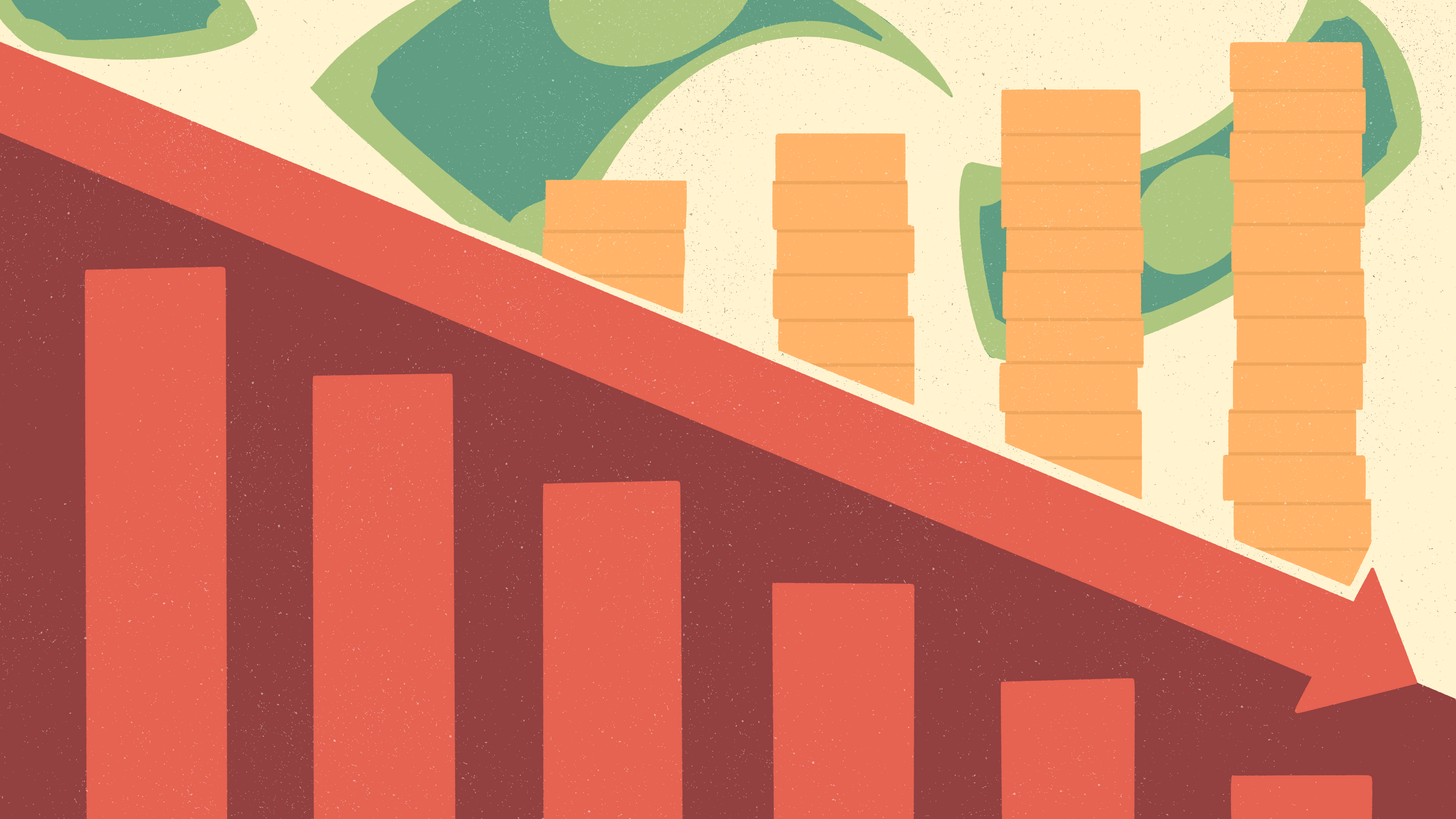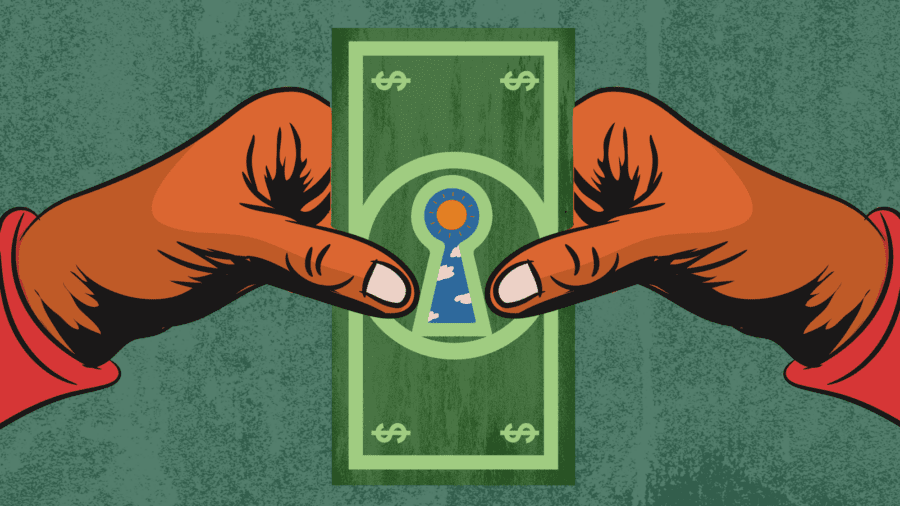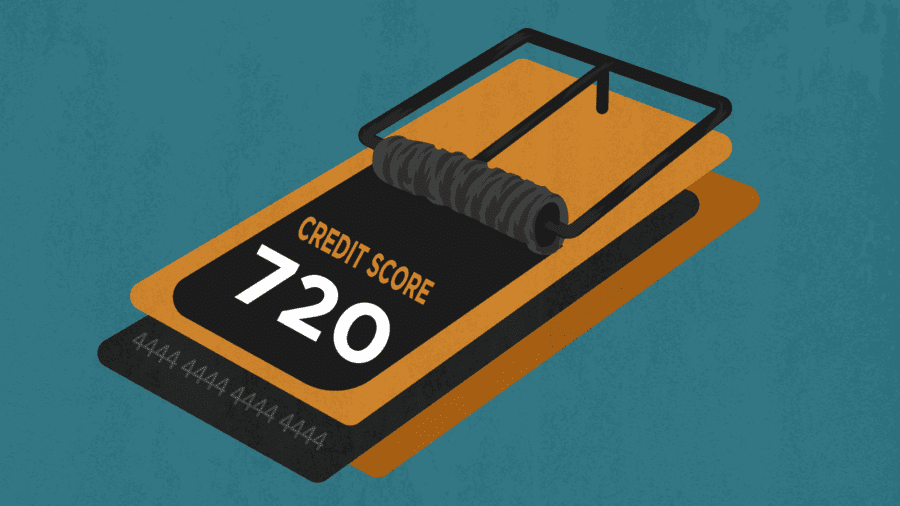
How An Economic Recession Can Make You a Millionaire: A Beginner’s Guide
Economic recessions create overwhelming challenges, but they also offer valuable opportunities.
Have you ever heard about corporations and billionaires increasing their wealth during economic downturns? A big part of how they can accumulate so much wealth comes from having the capital and financial knowledge to make wise investment decisions.
You may not be a billionaire or the head of a multinational corporation, but thankfully, you don’t have to be to make the most of a recession. Financial experts like Jaspreet Singh, founder of the newsletter Market Briefs and Minority Mindset, are sharing secrets to help you secure wealth during economic downturns.
Jaspreet describes recessions as “Black Friday for investors” because you can obtain valuable securities and assets at a discounted price. Riches are made in recessions because tremendous investment opportunities are hidden within economic slow downs — you can learn how to invest and what to invest in by expanding your financial literacy.
In this article, we share invaluable insights from Jaspreet Singh about building wealth during these challenging times, including how to make the best investment decisions.
Why Your Financial Education is Crucial to Building Wealth
One of the most important parts — if not THE most important part — of building wealth is your financial education.
In order to make wise investment decisions and avoid economic pitfalls, you need to become more financially literate. That way, you make your dollar go further and avoid unnecessary expenses.
According to Jaspreet, a lack of financial education drives economic inequality and much of the reason people are financially uninformed is that large corporations want people to have a limited knowledge of how finances work.
For example, if you don’t understand how annual percentage rates work, you’ll likely end up paying more interest for your debts, and your creditors will make more of a profit. Credit card companies and other creditors profit from people being financially uneducated, and even banks benefit from customers remaining unaware of how to maximize their money.
When you deposit your money into a standard savings account, the bank will lend out your money and make investments in order to profit from it. Although the bank profits from your savings account, you’re actually losing money because the interest rate on a standard savings account is LESS than the inflation rate, meaning that your saved dollars are worth less and less every passing day.
Fortunately, you don’t need to stay in the dark when it comes to accumulating wealth. You can grow your financial literacy by reading Jaspreet Singh’s financial education blog, The Minority Mindset, and we also provide more financial education resources at Greatness.com.
Avoiding Debt During Economic Recessions
One critical part of moving toward economic success is learning how to avoid and overcome debts.
A key thing Jaspreet Singh recommends is to avoid accumulating debt during economic downturns and in times of economic growth. He advised people to avoid financing anything that doesn’t earn them a profit. Rather than financing liabilities, such as cars, vacations, and luxuries, try only to finance things that can earn you a profit.
For example, rather than financing an expensive car, consider buying a used car and only finance profitable assets, such as rental properties or investment opportunities.
What to Do in A Recession If You Have Debt
Millions of people struggle with overwhelming debt. If you’ve accumulated debt that’s not making you a profit, such as student loans, car payments, and credit card debts, you can get organized and create an actionable debt management plan in order to get your finances back on track.
The first step to becoming debt free is to create a budget for yourself. That way, you know where your money goes each month, and you can plan to have money left over to pay off some of your debt. Additionally, it’s helpful to live below your means so that you can use even more money to pay off your debts each month.
In addition to creating a budget, it’s helpful to implement a debt management plan, such as a snowball or avalanche debt management plan. With the snowball debt management plan, you pay off your smallest debts first so that you can build momentum for paying off your larger debts. With the avalanche debt management plan, you first focus on paying off your debt with the highest interest rate.
Understanding Why You Need to Invest
Investing is essential for building wealth during an economic downturn because of unique investment opportunities and the issue of inflation. Inflation refers to the rising cost of goods and services, and inflation largely occurs due to our money supply.
During periods in which the economy struggles, the Federal Reserve increases the money supply to stimulate the economy. For instance, the Federal Reserve has printed trillions of dollars since the 2020 pandemic, and the money supply has increased faster than the rate of production. Although the increase in our money supply boosted the economy during the pandemic, it also contributed to the high inflation rate and reduced the value of the U.S. dollar.
Another significant factor dictating inflation is supply chain disruption because it negatively impacts the amount of goods available. When there’s a disproportionate amount of money in relation to available goods, prices rise.
The Consequences of Inflation
Inflation drives economic inequality because many people are unaware of how to retain their money’s worth as inflation increases. Additionally, prices rise at an overwhelming rate during times of high inflation. In the beginning of 2022, people suffered heavy financial losses because of the mounting cost of gas, housing, and goods.
The sharp rate of inflation creates more of an economic gap because the wealthy and financially educated use the opportunity to make wise investments while those living paycheck to paycheck see their dollars shrink.
The best way to reduce the harmful effects of inflation is to invest in stable securities with a higher rate of growth than the inflation rate.
If you put your money in a standard savings account, the value of that money will only shrink as inflation increases. When you invest your money in securities with a decent rate of return, such as a mutual fund or exchange-traded fund, you avoid the pitfalls of inflation because your annual return is higher than the rate of inflation.
Join In 200 Million+ On The Journey to Greatness
What to Invest in During a Recession
Making wise investment decisions during an economic recession is crucial for building wealth.
Although economic downturns are challenging for most people, they also present valuable investment opportunities. Many investors have built their fortunes during recessions because they put their money in the right companies to accumulate immense wealth.
The question of what one should invest in during a recession depends on the underlying factors contributing to the economic slump. For example, many people made a profit investing in houses after the 2008 housing market crash. People purchased and renovated homes after the housing bubble burst and prices fell, and they were able to turn a profit as home prices returned to normal levels.
What Should I Invest in During an Economic Downturn?
When experiencing an economic slowdown, you can profit from investing in the stock market. Although Singh researches and invests in individual stocks, he recommends that most investors put their money in exchange-traded funds (ETFs).
ETFs are safer than investing in individual securities because they track an index, commodity, or sector. This option is less risky because most people don’t have time to pay close attention to the movement of individual stocks.
For example, the SPDR S&P 500 ETF tracks the S&P 500 Index, and the S&P 500 features 500 leading U.S. companies. When investing in the SPDR S&P 500, you invest in a significant portion of the U.S. economy rather than a single company.
If you make these investment decisions during a recession where prices are low, you can earn a profit as the economy bounces back.
Avoid Emotion-Driven Investing
It’s critical to avoid making investment decisions based on your emotions.
The stock market is incredibly emotion-driven, meaning that people often buy and sell based on fear or hype surrounding a security. Although prices always fluctuate — especially during recessions — it’s crucial to remember that more secure investments, such as the SPDR S&P 500 ETF, have a stable increase over time.
For example, the average annualized return for the S&P 500 is 10.49%. This means that if you invested $1,000 and allowed it to grow for 30 years, your investment would be worth $19,938.55. Although there may be times during that 30-year period where the value decreases, it’s more profitable for you to keep your money invested.
This differs from investing in individual stocks because a company’s stock may never be able to bounce back after a tough economic period, and the company could even shut down.
Remember That You Can’t Predict the Market
Another key idea Jaspreet Singh emphasizes is that people cannot predict the stock market’s timing. Investors often lose valuable opportunities because they want to invest at the perfect time – during recessions, they want to invest in the stock market when it’s at its lowest.
Always keep in mind that you can never predict when a stock’s value will reach its lowest point, so it’s better to invest while it’s still decreasing.
During 2020, Jaspreet made many investments as the stock market fell. Many disagreed with his approach because the market was still falling, but Jaspreet knew that he would eventually benefit from his investments despite decreasing stock prices. He knew he wouldn’t be able to find the exact timing for when the stock market was at its lowest.
Ultimately, he made a significant profit from his investments once the Federal Reserve stimulated the economy with an influx of new money. If he had waited longer for the best time to invest, he likely would’ve missed out on the opportunity because the economy bounced back so quickly.
NO ONE can predict the exact timing of the market, so it’s best to invest when you find a discounted price, even if the price may fall further.
Learn More About Improving Your Financial Literacy with Jaspreet Singh
Learning more about money is critical for thriving during a recession. Although these periods present hardships, you can overcome inflation and profit by making wise investment decisions.
Many online resources are available to improve your financial literacy, including Investopedia.com, Forbes.com, Jaspreet Singh’s Minority Mindset blog, and more articles on Greatness.com.
Some of our Greatness articles that are especially helpful for improving your financial future include “How to Negotiate Salary Like a Pro (and Win Big!),” “5 Wildly Successful Entrepreneurs Who ALMOST Gave Up on Their Dreams,” and “5 Ways to Improve Your Money Mindset and Manifest Abundance.”
And you can also learn more by watching The School of Greatness episodes featuring Jaspreet Singh, “The Biggest Lies You’ve Been Told About Money, Debt & Building Wealth” and “How to Manage Your Emotions Around Money and Create Future Wealth.” For more financial tips and tricks, be sure to also keep up with Jaspreet Singh on Twitter (@MinorityM1ndset) and Instagram (minoritymindset).
Remember, you have the tools available to grow your wealth and improve your financial future. Take the first step today in enhancing your financial literacy!
Greatness Authors
Greatness Authors is a collection of writers, thinkers, curiosity experts, and students of the world who are committed to bringing you the most up-to-date, impactful, and inspiring information surrounding Greatness topics.

Before You Retire, Ask Yourself These 7 Financial Questions to Make Sure You’re in the Clear

The *New* Way to Market Your Business on YouTube & Best Practices for Higher Engagement

The Power of Masterminds to Grow Your Business and How to Find One Near You

4 Inspirational Stories That Prove Money Isn’t the Key to Happiness

A Beginner’s Guide to Building a Great Credit Score While Avoiding Debt and Common Credit Mistakes










